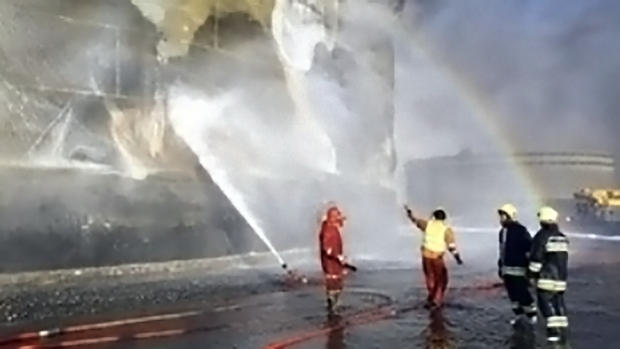Libya approaches worst-economic backdrop since Gaddafi’s fall
The Financial Times
After oil exporters’ descent into violence, hopes are pinned on prospect of a new government

Libya’s descent into violence and instability over the past 18 months has brought a collapse in the country’s oil production from a post-revolution high of 1.4m barrels a day to under 400,000 b/d. The Libyan dinar has depreciated 60 per cent in the past 18 months on Tripoli’s black market, and lengthy fuel and power shortages are now commonplace across the country.
The Economist Intelligence Unit forecasts Libyan GDP to fall more than 8 per cent in 2016, making it the world’s worst-performing economy.
But against this deteriorating backdrop, a number of encouraging developments in recent weeks have attracted little attention in the investment community. These have taken the country to its most critical juncture since the overthrow of the Gaddafi regime in 2011, and raise the prospect that Libya’s oil production could recover to close to 1m b/d in a relatively short timeframe.
The “watershed” moment came in Rome last month. John Kerry, US secretary of state, co-chaired a conference attended by 17 countries, UN Libya envoy Martin Kobler and members of Libya’s two rival governments. Mr Kerry stated: “We cannot allow the status quo in Libya to continue. It is dangerous for the viability of Libya, it is dangerous for Libyans, and now, because of the increase of the presence of purposefully migrating there, it is dangerous for everyone.”
Four days later, on December 17, a UN-brokered agreement to form a new Libyan Government of National Accord (GNA) was signed by representatives of Libya’s two rival governments in Skhirat, Morocco. This followed numerous failed attempts by the UN to facilitate an agreement between Libya’s various factions.
Since then, the 15 members of the UN Security Council have unanimously adopted a resolution in support of the new political agreement and recognition of the GNA as the sole legitimate government of Libya. Meanwhile, the prime minister designate of the new GNA, Faiez Al-Serraj, has been meeting with members of the international community.
If a new Libyan government is successfully named within the 30-day deadline of the December 17 agreement, and is able to establish itself securely in Tripoli, it would be the first step in restoring the security situation in the country and consequently oil production. This would require co-ordinated and decisive action to tackle the threat of Isis and other armed groups in the country opposing the political agreement.
Armed militias blockading oil pipelines and export terminals would either need to be absorbed under the new government or forcibly removed, which in turn would lead to oil production recovering from fields in the south-west and eastern parts of Libya.
Relatively little oil infrastructure has been damaged in the country so far despite several Isis attacks, and ongoing fighting between rival militias over the past few years.
Libya’s production could therefore feasibly recover to 1m b/d relatively quickly if the right security conditions are in place. For example, ending the blockade on a key pipeline from the Murzuk Basin in the south-west of Libya to the coast could add 300-400,000b/d of oil production within a short timeframe.
The developments in the past month suggest the likelihood of this political scenario is increasing, but it is by no means a given. Last week’s attack by Isis on the Es-Sider and Ras Lanuf oil export terminals, and a deadly truck bomb in Zliten, are a case in point.
An alternative scenario is that the Government of National Accord is unable to establish a presence in Tripoli, facing opposition from armed groups and limited outside support.
Rivalries between the various armed groups continue and prevent any meaningful recovery in oil production from current levels. Further expansion of Isis in Libya would increase the risk of long-term impairment to Libya’s production and export capacity through infrastructure damage. In this scenario, the integrity and independence of key institutions such as the National Oil Company could be put at risk as the rival governments continue to fight over Libya’s diminishing wealth, leading to further disruptions to oil production.
How to submit an Op-Ed: Libyan Express accepts opinion articles on a wide range of topics. Submissions may be sent to oped@libyanexpress.com. Please include ‘Op-Ed’ in the subject line.
- Libya’s HCS invites applicants for key state roles - December 31, 2023
- UK calls on Iran to prevent escalation in Israel-Hamas conflict - November 05, 2023
- Libyan Interior Minister: Immigrant shelter costs a fortune - November 05, 2023


